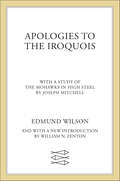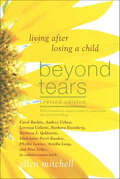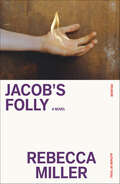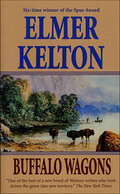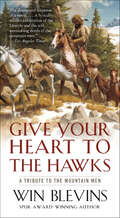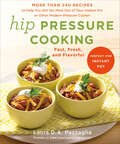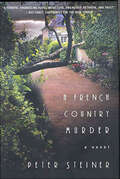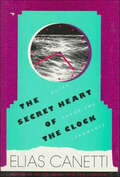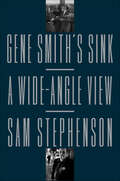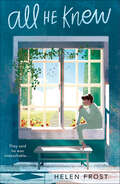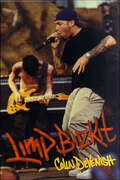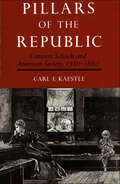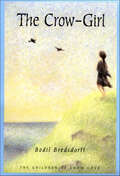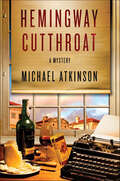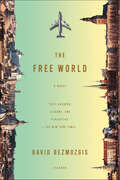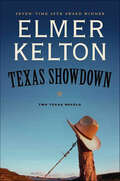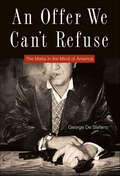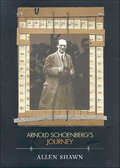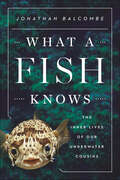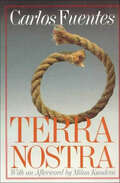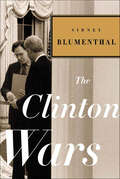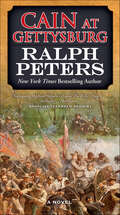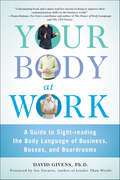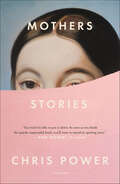- Table View
- List View
Apologies to the Iroquois (The\iroquois And Their Neighbors Ser.)
by Edmund WilsonEdmund Wilson's personal and informative study on the plight of the Native American Indians, Apologies to the IroquoisAs Wilson writes, “[In August 1975] I discovered in the New YorkTimes what seemed to me a very queer story. A band of Mohawk Indians, under the leadership of a chief called Standing Arrow, had moved in on some land on Schoharie Creek, a little river that flows into the Mohawk not far from Amsterdam, New York, and established a settlement there. Their claim was that the land they were occupying had been assigned them by the United States in a treaty of 1784. The Times ran a map of the tract which had at that time been recognized by our government as the territory of the Iroquois people, who included the Mohawks, the Senecas, the Onondagas, the Oneidas, the Cayugas and the Tuscaroras, and were known as the Six Nations. The tract was sixty miles wide, and it extended almost from Buffalo to Albany. "I had already known about this agreement as the Treaty of Fort Stanwix (now Rome, New York), which had first made it possible for white people to settle in upper New York State without danger of molestation by its original inhabitants; but I had not known what the terms of this treaty were, and I was surprised to discover that my property, acquired at the end of the eighteenth century by the family from which it had come to me, seemed to lie either inside or just outside the northern boundary. Having thus been brought to realize my ignorance of our local relations with the Indians and continuing to read in the papers of the insistence of Standing Arrow that the Mohawks had some legal right to the land on which they were camping, I paid a visit, in the middle of October, to their village on Schoharie Creek . . . .”
Beyond Tears: Living After Losing a Child
by Ellen MitchellMeant to comfort and give direction to bereaved parents, Beyond Tears is written by nine mothers who have each lost a child. This revised edition includes a new chapter written from the perspective of surviving siblings.The death of a child is that unimaginable loss no parent ever expects to face. In Beyond Tears, nine mothers share their individual stories of how to survive in the darkest hour. They candidly share with other bereaved parents what to expect in the first year and long beyond:*Harmonious relationships can become strained*There is a new definition of what one considers "normal" *The question "how many children do you have?" can be devastating*Mothers and fathers mourn and cope differently*Surviving siblings grieve and suffer as well*There simply is no answer to the question "why?" This sharing in itself is a catharsis and because each of these mothers lost her child at least seven years ago, she is in a unique position to provide perspective on what newly bereaved parents can expect to feel. The mothers of Beyond Tears offer reassurance that the clouds of grief do lessen with time and that grieving parents will find a way to live, and even laugh again.Contributors include Ellen Mitchell, Carol Barkin, Audrey Cohen, Lorenza Colletti, Barbara Eisenberg, Barbara Goldstein, Madelaine Perri Kasden, Phyllis Levine, Ariella Long, and Rita Volpe.
Jacob's Folly: A Novel
by Rebecca MillerA luminous novel-funny and moving in equal measure-that shines with the author's unique talentsJacob's Folly is a rollicking, ingenious, saucy book, brimful of sparkling, unexpected characters, that takes on desire, faith, love, acting-and reincarnation. In eighteenth-century Paris, Jacob Cerf is a Jew, a peddler of knives, saltcellars, and snuffboxes. Despite a disastrous teenage marriage, he is determined to raise himself up in life, by whatever means he can. More than two hundred years later, Jacob is amazed to find himself reincarnated as a fly in the Long Island suburbs of twenty-first-century America, his new life twisted in ways he could never have imagined. But even the tiniest of insects can influence the turning of the world, and thanks to his arrival, the lives of a reliable volunteer fireman and a young Orthodox Jewish woman nursing a secret ambition will never be the same. Through the unique lens of Jacob's consciousness, Rebecca Miller explores change in all its different guises-personal, spiritual, literal. The hold of the past on the present, the power of private hopes and dreams, the collision of fate and free will: Miller's world-which is our own, transfigured by her clear gaze and by her sharp, surprising wit-comes brilliantly to life in the pages of this profoundly original novel.
Buffalo Wagons: Two Complete Novels
by Elmer KeltonFor Gage Jameson, the summer of 1873 has been a poor hunt. A year ago he felled sixty-two buffalo in one stand, but now the great Arkansas River herd is gone, like the Republican herd before it.In Dodge City, old hide hunters speak is awe of a last great heard to the south--but no hunter who values his scalp dares ride south of the Cimarron and into Comanche territory. None but Gage Jameson....At the Publisher's request, this title is being sold without Digital Rights Management Software (DRM) applied.
Give Your Heart to the Hawks: A Tribute to the Mountain Men
by Win BlevinsStunningly portrayed by Leonardo DiCaprio in the Golden Globe Award-winning and twelve-time Academy Award nominated film The Revenant. Mountain man Hugh Glass’s harrowing journey 300 miles to civilization after being mauled by a grizzly bear and left for dead is just one of the incredible adventures Spur Award Winning author Win Blevins explores in the New York Times bestseller, Give Your Heart to the Hawks. In addition to the captivating story of Hugh Glass, Win Blevins presents a poetic tribute to these dauntless "first Westerners" who explored the Great American West from the time of Lewis and Clark into the 1840s. As trappers in a hostile, trackless land, their exploits opened the gates of the mountains for the wagon trains of pioneers who followed them. Here, among many, are the enthralling stories of: * John Colter, who, in 1808, naked and without weapons or food, escaped captivity by the Blackfeet and ran and walked 250 miles to Fort Lisa at the mouth of the Yellowstone River; * Kit Carson, who ran away from home at age 17, became a legendary mountain man in his 20s and served as scout and guide for John C. Fremont's westward explorations of the 1840s; * Jedediah Smith, a tall, gaunt, Bible-reading New Yorker whose trapping expeditions ranged from the Rockies to California and who was killed by Comanches on the Cimarron in 1831.At the Publisher's request, this title is being sold without Digital Rights Management Software (DRM) applied.
Hip Pressure Cooking: Fast, Fresh, and Flavorful
by Laura D.A. PazzagliaLaura Pazzaglia’s Hip Pressure Cooking offers over 200 surefire recipes designed to work in the Instant Pot, electric pressure cookers, multi-cookers with pressure programs, and stove top pressure cookers, too! In fact, the recipes were tested across multiple pressure cookers - Instant Pot, Fagor, WMF and Kuhn Rikon – to ensure delicious results no matter what you have in your kitchen.That’s right, the once-lowly and maligned pressure cooker is making a comeback! This relic of your grandparents' kitchen is not only improved and safer than ever before, but it saves time, creates more flavor, and conserves energy. Laura Pazzaglia wasn't thinking of all this when she tried pressure cooking for the first time, but after watching a friend make dinner in 10 minutes, Pazzaglia knew she had found the solution to her time-crunched life. In fact, she cooked so much she began offering recipes and advice on a website she created. At the time, pressure cooking recipes didn't emphasize aesthetics; while the food might be delicious, it was often unappealing in presentation. But Pazzaglia not only figured out how to make pressure cooked food appealing, she gained a large following for her recipes and techniques while doing it!A culmination of Pazzaglia’s experience, Hip Pressure Cooking offers everything from tasty recipes featuring fresh ingredients to special cooking techniques perfected over the years to basic tips on operating your pressure cooker where she walks you through every step of the process. The secret is out—and now you too can discover the potential of this super appliance with this revolutionary guide to cooking with pressure!
A French Country Murder: A Novel (The Louis Morgon Thrillers #1)
by Peter SteinerA cross between The Spy Who Came in from the Cold and A Year in Provence, this ingenious thriller gets stunning raves from one and all:"A marvel." - Olen Steinhauer • "Riveting." - France Today • "Elements of Agatha Christie and Robert Ludlum." - Bookreporter.com • "'Superbe'." - Jim Fusilli • "Like a good Alan Furst or Graham Greene." - The Washingtonian • "Engaging." - Publishers WeeklyA French Country Murderis a story of political intrigue, corruption and jealousy. It is also a story of love and friendship and, of course, France.When political intrigue drove Louis Morgon from a successful career at the State Department, he moved to a cottage in France, far from Washington and what he called "the sordid world." He took up painting. He grew vegetables and flowers. He ate long, lovely meals on the terrace overlooking fields of sunflowers. He thought that he had found happiness.Then one day Louis's past lands squarely on his doorstep. It does so in the shape of a dead man. His throat has been slit. He wears a cap with "liberte" embroidered on it. Except for the local cop, Jean Renard, the police are strangely uninterested. This seems peculiar to Renard, but not to Louis. He knows who the murderer is. He also knows that he is likely to be the next victim. And there is very little he or Renard or anyone else can do. Each clue they find raises more questions than it answers. Nothing is as it appears.Louis's best hope is to turn the tables on his murderer. Instead of knowledge, he has only his intuition and his intelligence. Instead of power or influence, he has only his own past. Louis finds himself on a lonely and dangerous journey of self-discovery. He thought he was beyond surprises. But every turn of the road reveals new mysteries, and the resolution is a shock.This book was later published as Le Crime.
The Secret Heart of the Clock: Notes, Aphorisms, Fragments
by Elias CanettiFrom one of the preeminent intellectual figures of the twentieth century, a highly personal testimonial of what Canetti himself chooses to term "notations," bits and pieces: notes, aphorisms, fragments. Taken together, they present an awesomely tender, guiltily gloomy meditation on death and aging." A mosaical portrait of an old body's mind determined to do its exercises and not lose a step--and fascinating for that." - Kirkus Reviews
Gene Smith's Sink: A Wide-Angle View
by Sam StephensonAn incisive biography of the prolific photo-essayist W. Eugene SmithFamously unabashed, W. Eugene Smith was photography’s most celebrated humanist. As a photo essayist at Life magazine in the 1940s and ’50s, he established himself as an intimate chronicler of human culture. His photographs of war and disaster, villages and metropolises, doctors and midwives, revolutionized the role of images in journalism, transforming photography for decades to come.When Smith died in 1978, he left behind eighteen dollars in the bank and forty-four thousand pounds of archives. He was only fifty-nine, but he was flat worn-out. His death certificate read “stroke,” but, as was said of the immortal jazzman Charlie Parker, Smith died of “everything,” from drug and alcohol benders to weeklong work sessions with no sleep.Lured by the intoxicating trail of people that emerged from Smith’s stupefying archive, Sam Stephenson began a quest to trace his footsteps. In Gene Smith’s Sink, Stephenson merges traditional biography with rhythmic digressions to revive Smith’s life and legacy. Traveling across twenty-nine states, Japan, and the Pacific, Stephenson profiles a lively cast of characters, including the playwright Tennessee Williams, to whom Smith likened himself; the avant-garde filmmaker Stan Brakhage, with whom he once shared a Swiss chalet; the artist Mary Frank, who was married to his friend Robert Frank; the jazz pianists Thelonious Monk and Sonny Clark, whose music was taped by Smith in his loft; and a series of obscure caregivers who helped keep Smith on his feet. The distillation of twenty years of research, Gene Smith’s Sink is an unprecedented look into the photographer’s potent legacy and the subjects around him.
All He Knew
by Helen FrostA 2021 Scott O'Dell Award WinnerA Society of Midland Authors Winner in Children's FictionA Bank Street Best Book of the Year 2021A novel in verse about a young deaf boy during World War II, the sister who loves him, and the conscientious objector who helps him. Inspired by true events.Henry has been deaf from an early age—he is intelligent and aware of langauge, but by age six, he has decided it's not safe to speak to strangers. When the time comes for him to start school, he is labeled "unteachable." Because his family has very little money, his parents and older sister, Molly, feel powerless to help him. Henry is sent to Riverview, a bleak institution where he is misunderstood, underestimated, and harshly treated.Victor, a conscientious objector to World War II, is part of a Civilian Public Service program offered as an alternative to the draft. In 1942, he arrives at Riverview to serve as an attendant and quickly sees that Henry is far from unteachable—he is brave, clever, and sometimes mischievous. In Victor's care, Henry begins to see how things can change for the better. Heartbreaking and ultimately hopeful, Helen Frost's All He Knew is inspired by true events and provides sharp insight into a little-known element of history.
Limp Bizkit
by Colin Devenish1999 was quite a year for Limp Bizkit. Their album, "Significant Other," sat atop the Billboard album charts. Rolling Stone hailed them as the lone band that "redefined late-Nineties hard rock." Their Woodstock '99 set is routinely referred to as the hottest moment of the three day concert. All in all, things are definitely happening for this most unique group. Combining rap, metal and the angst filled sentiment of punk rock, Limp Bizkit are the poster-boys for millenium madness.Noted music journalist Colin Devenish goes beyond the chart topping numbers and concert grosses to examine what has turned this rough and tumble bunch from Jacksonville, Florida into the hottest group on the charts.
Pillars of the Republic: Common Schools and American Society, 1780–1860 (American Century)
by Carl F. KaestlePillars of the Republic is a pioneering study of common-school development in the years before the Civil War. Public acceptance of state school systems, Kaestle argues, was encouraged by the people's commitment to republican government, by their trust in Protestant values, and by the development of capitalism. The author also examines the opposition to the Founding Fathers' educational ideas and shows what effects these had on our school system.
The Crow-Girl: The Children Of Crow Cove (The Children of Crow Cove Series #1)
by Bodil BredsdorffA timeless novel about the kindness of strangersNear a little cove where a brook runs out to the sea live a girl and her grandmother. All alone with no neighbors at all, the two lead a peaceful existence. They have a house, dine on sea kale and mussels and sand snails, and build fires from driftwood. But the grandmother is very old. When the time comes that the girl must bury the woman, she makes up a funeral song about the birds she is watching: Two crows never fly alone, and death is never, ever past. The next day the same crows seem to beckon her, and so the Crow-Girl begins her journey, one in which she will meet people both warm and cold, hurt and hurtful. And the Crow-Girl, before she knows it, has the makings before her of a new family . . . This lyrical story, with its characters' moments of darkness always overcome through incredible humanity, introduces a strong new voice for American readers.
Hemingway Cutthroat: A Mystery (Ernest Hemingway Mysteries)
by Michael AtkinsonThere were no bullfights in 1937 Madrid, just bombs, freedom fighters, journalists, and plenty of corpses. Ernest Hemingway, covering the Spanish Civil War for the American press, came looking for stories and danger, and found something else: a friend murdered amid the ruins. With a new novel stirring in his head and his veins pumping with booze, Hemingway sets out to find who killed José Robles Pazos, a bureaucrat in the Popular Front, and who's covering it up. There is, after all, nothing like risking death in a war zone if it means living fast, nailing the bastards, and avoiding a deadline. With the writer John Dos Passos at his side, Hemingway wades into the darkness, discovering that his old WWI buddy is no mere casualty of war---but victim of something far more terrible. Boisterous, bare knuckled, and stewed to the gills, Hemingway Cutthroat captures the writer at the height of his career and in a Europe teetering on untold cataclysm, struggling to find out not just for whom, but why the bell tolled.
The Free World: A Novel
by David BezmozgisA New York Times Notable Book for 2011 A Globe and Mail Best Books of the Year 2011 TitleSummer, 1978. Brezhnev sits like a stone in the Kremlin, Israel and Egypt are inching towards peace, and in the bustling, polyglot streets of Rome, strange new creatures have appeared: Soviet Jews who have escaped to freedom through a crack in the Iron Curtain. Among the thousands who have landed in Italy to secure visas for new lives in the West are the members of the Krasnansky family — three generations of Russian Jews. There is Samuil, an old Communist and Red Army veteran, who reluctantly leaves the country to which he has dedicated himself body and soul; Karl, his elder son, a man eager to embrace the opportunities emigration affords; Alec, his younger son, a carefree playboy for whom life has always been a game; and Polina, Alec's new wife, who has risked the most by breaking with her old family to join this new one. Together, they will spend six months in Rome — their way station and purgatory. They will immerse themselves in the carnival of emigration, in an Italy rife with love affairs and ruthless hustles, with dislocation and nostalgia, with the promise and peril of a new life. Through the unforgettable Krasnansky family, David Bezmozgis has created an intimate portrait of a tumultuous era.Written in precise, musical prose, The Free World is a stunning debut novel, a heartfelt multigenerational saga of great historical scope and even greater human depth. Enlarging on the themes of aspiration and exile that infused his critically acclaimed first collection, Natasha and Other Stories, The Free World establishes Bezmozgis as one of our most mature and accomplished storytellers.
Texas Showdown: Two Texas Novels
by Elmer KeltonElmer Kelton writes of his beloved home country of West Texas in these two novels of cowmen and cow country.In Pecos Crossing, two young cowboys, Johnny Fristo and Speck Quitman, have been cheated of six months' hard-earned salary by their rancher boss Larramore and intend getting what is due to them.In Shotgun, Texas rancher Blair Bishop has to contend with a rival cowman who is turning his herd loose on Bishop‘s land, and with a mean customer named Macy Modock, who Bishop sent to prison ten years past. Modock is out of the hoosegow and has returned determined to get even with the man who sent him up the river.At the Publisher's request, this title is being sold without Digital Rights Management Software (DRM) applied.
An Offer We Can't Refuse: The Mafia in the Mind of America
by George De StefanoA provocative and entertaining look at the mafia, the media, and the (un)making of Italian Americans.As evidenced in countless films, novels, and television portrayals, the Mafia has maintained an enduring hold on the American cultural imagination--even as it continues to wrongly color our real-life perception of Italian Americans. In An Offer We Can't Refuse, George De Stefano takes a close look at the origins and prevalence of the Mafia mythos in America.Beginning with a consideration of Italian emigration in the early twentieth century and the fear and prejudice--among both Americans and Italians--that informed our earliest conception of what was at the time the largest immigrant group to enter the United States, De Stefano explores how these impressions laid the groundwork for the images so familiar to us today and uses them to illuminate and explore the variety and allure of Mafia stories--from Coppola's romanticized paeans to Scorsese's bloody realism to the bourgeois world of David Chase's Sopranos--while discussing the cultural richness often contained in these works.De Stefano addresses the lingering power of the goodfella cliché and the lamentable extent to which it is embedded in our consciousness, making it all but impossible to green-light a project about the Italian American experience not set in gangland."Invites Italian-Americans of all backgrounds to the family table to discuss how mob-related movies and television shows have affected the very notion of what their heritage still means in the 21st century." -- Allen Barra, The New York Sun
Mining California: An Ecological History
by Andrew C. IsenbergAn environmental History of California during the Gold Rush Between 1849 and 1874 almost $1 billion in gold was mined in California. With little available capital or labor, here's how: high-pressure water cannons washed hillsides into sluices that used mercury to trap gold but let the soil wash away; eventually more than three times the amount of earth moved to make way for the Panama Canal entered California's rivers, leaving behind twenty tons of mercury every mile—rivers overflowed their banks and valleys were flooded, the land poisoned. In the rush to wealth, the same chain of foreseeable consequences reduced California's forests and grasslands.Not since William Cronon's Nature's Metropolis has a historian so skillfully applied John Muir's insight—"When we try to pick out anything by itself, we find it hitched to everything else in the universe"—to the telling of the history of the American West. Beautifully told, this is western environmental history at its finest.
Arnold Schoenberg's Journey
by Allen ShawnA composer's study and celebration of a difficult but influential artist, his work, and his timeProposing that Arnold Schoenberg (1874-1951) has been more discussed than heard, more tolerated than loved, composer Allen Shawn puts aside ultimate judgments about Schoenberg's place in musical history to explore the composer's fascinating world in a series of "linked essays--soundings" that are more searching than analytical, more suggestive than definitive. In an approach that is unusual for a book of an avowedly introductory character, the text plunges into the details of some of Schoenberg works, while at the same time providing a broad overview of his involvement in music, painting and the history through which he lived. Emphasizing music as an expressive art of rhythms and tones, Shawn approaches Schoenberg primarily from the listener's point of view, uncovering both the seeds of his radicalism in his early music and the traditional bases of his later work. Although liberally sprinkled with musical examples, the text can be read without them. By turns witty, personal, opinionated and instructive, "Arnold Schoenberg's Journey" is above all an appreciation of a great musical and artistic imagination in a time unlike any other.
What a Fish Knows: The Inner Lives of Our Underwater Cousins
by Jonathan BalcombeA New York Times Bestseller Do fishes think? Do they really have three-second memories? And can they recognize the humans who peer back at them from above the surface of the water? In What a Fish Knows, the myth-busting ethologist Jonathan Balcombe addresses these questions and more, taking us under the sea, through streams and estuaries, and to the other side of the aquarium glass to reveal the surprising capabilities of fishes. Although there are more than thirty thousand species of fish—more than all mammals, birds, reptiles, and amphibians combined—we rarely consider how individual fishes think, feel, and behave. Balcombe upends our assumptions about fishes, portraying them not as unfeeling, dead-eyed feeding machines but as sentient, aware, social, and even Machiavellian—in other words, much like us. What a Fish Knows draws on the latest science to present a fresh look at these remarkable creatures in all their breathtaking diversity and beauty. Fishes conduct elaborate courtship rituals and develop lifelong bonds with shoalmates. They also plan, hunt cooperatively, use tools, curry favor, deceive one another, and punish wrongdoers. We may imagine that fishes lead simple, fleeting lives—a mode of existence that boils down to a place on the food chain, rote spawning, and lots of aimless swimming. But, as Balcombe demonstrates, the truth is far richer and more complex, worthy of the grandest social novel. Highlighting breakthrough discoveries from fish enthusiasts and scientists around the world and pondering his own encounters with fishes, Balcombe examines the fascinating means by which fishes gain knowledge of the places they inhabit, from shallow tide pools to the deepest reaches of the ocean. Teeming with insights and exciting discoveries, What a Fish Knows offers a thoughtful appraisal of our relationships with fishes and inspires us to take a more enlightened view of the planet’s increasingly imperiled marine life. What a Fish Knows will forever change how we see our aquatic cousins—the pet goldfish included.
Terra Nostra (Folio Ser. #Vol. 38141)
by Carlos FuentesTerra Nostra is one of the great masterpieces of modern Latin American fiction. Concerned with nothing less than the history of Spain and of South America, with the Indian Gods and with Christianity, with the birth, the passion, and the death of civilizations, Fuentes's great novel is, indeed, that rare creation--the total work of art.Magnificently translated by Margaret Sayers Peden, Terra Nostra is, as Milan Kundera says in his afterword, "the spreading out of the novel, the exploration of its possibilities, the voyage to the edge of what only a novelist can see and say."
The Clinton Wars
by Sidney BlumenthalAn invaluable history of an extraordinary presidency, and the chronicle of a generation's political odyssey When in 1997 Bill Clinton appointed Sidney Blumenthal as a senior advisor, the former writer was catapulted into the front lines of the Clinton wars. From his first day in the White House until long after his appearance as the only presidential aide ever to testify in an impeachment trial, Blumenthal acted in or witnessed nearly all the battles of the Clinton years. This major book—part history, part memoir—is the first inside account we have of the presidency of William Jefferson Clinton.The Clinton Wars begins in 1987, when Blumenthal first met Bill and Hillary Clinton. His chronicle of Clinton's first presidential campaign and first term draws on his experiences as confidant to both the President and the First Lady, and is enriched with previously unpublished revelations about both. This remarkable personal interpretation goes far in explaining the polarizing nature of Clinton's presence on the national scene. The narrative of Clinton's second term is even more dramatic. Blumenthal takes special note of the battle that was waged within the media between the President's detractors and defenders, which he expands into a vivid picture of Washington society torn apart by warring factions. But he does not neglect the wars fought on other fronts—in Kosovo, against Congress, and for economic prosperity. His remarkable book ends with the inside story of the fight to elect Al Gore in 2000 and extend the legacy of the Clinton-Gore Administration.Every page of this unrivaled, authoritative book, with its intimate insights into Clinton's personality and politics, attests to Blumenthal's literary skill, profound understanding of politics, and unique perspective on crucial events of our recent past. The Clinton Wars is a lasting contribution to American history.
Cain at Gettysburg: A Novel (The Battle Hymn Cycle #1)
by Ralph PetersWinner of the American Library Association's W. Y. Boyd Award for Excellence in Military FictionTwo mighty armies blunder toward each other, one led by confident, beloved Robert E. Lee and the other by dour George Meade. They'll meet in a Pennsylvania crossroads town where no one planned to fight.In this sweeping, savagely realistic novel, the greatest battle ever fought on American soil explodes into life at Gettysburg. As generals squabble, staffs err. Tragedy unfolds for immigrants in blue and barefoot Rebels alike. The fate of our nation will be decided in a few square miles of fields.Following a tough Confederate sergeant from the Blue Ridge, a bitter Irish survivor of the Great Famine, a German political refugee, and gun crews in blue and gray, Cain at Gettysburg is as grand in scale as its depictions of combat are unflinching.For three days, battle rages. Through it all, James Longstreet is haunted by a vision of war that leads to a fateful feud with Robert E. Lee. Scheming Dan Sickles nearly destroys his own army. Gallant John Reynolds and obstreperous Win Hancock, fiery William Barksdale and dashing James Johnston Pettigrew, gallop toward their fates….There are no marble statues on this battlefield, only men of flesh and blood, imperfect and courageous. From New York Times bestselling author and former U.S. Army officer Ralph Peters, Cain at Gettysburg is bound to become a classic of men at war.At the Publisher's request, this title is being sold without Digital Rights Management Software (DRM) applied.
Your Body at Work: A Guide to Sight-reading the Body Language of Business, Bosses, and Boardrooms
by David GivensHOW DO YOU MAKE IT IN BUSINESS?STOP LISTENING AND START WATCHINGYour Body at Work is a guide to seeing past the words that fill the hallways, conference rooms, and e-mails of your workplace, and to deciphering the hidden meanings that lie behind them. Through real-life examples from the world of business, and with background from the science of communication, you'll learn to sight-read colleagues and use your own body language to your best advantage. You'll find out:• How a co-worker's hands, much more than her words, tell you how she felt about your presentation • Why gestures at a meeting are more memorable than words• When a shrug of the shoulders can mean the difference between "job well done" and "job could be better"• How to train a nosy boss to back off—without uttering a single word• What your shoes and your hair may be saying about your commitment to the job• Why you'll find more smiley-face stickers in cubicles than in corner officesDavid Givens has been a consultant to some of the biggest companies in the United States. With his expertise, he'll help you look past the words so you can really read your workplace.
Mothers: Stories
by Chris PowerAn “extraordinary” (The Sunday Times) debut of unnerving beauty, Chris Power’s short story collection Mothers evokes the magic and despair of the essential human longing for purpose.Chris Power’s stories are peopled by men and women who find themselves at crossroads or dead ends—characters who search without knowing what they seek. Their paths lead them to thresholds, bridges, rivers, and sites of mysterious, irresistible connection to the past. A woman uses her mother’s old travel guide, aged years beyond relevance, to navigate on a journey to nowhere; a stand-up comic with writer’s block performs a fateful gig at a cocaine-fueled bachelor party; on holiday in Greece, a father must confront the limits to which he can keep his daughters safe. Braided throughout is the story of Eva, a daughter, wife, and mother, whose search for a self and place of belonging tracks a devastating path through generations.Ranging from remote English moors to an ancient Swedish burial ground to a hedonistic Mexican wedding, the stories in Mothers lay bare the emotional and psychic damage of life, love, and abandonment. Suffused with yearning, Power’s transcendent prose expresses a profound ache for vanished pasts and uncertain futures.
